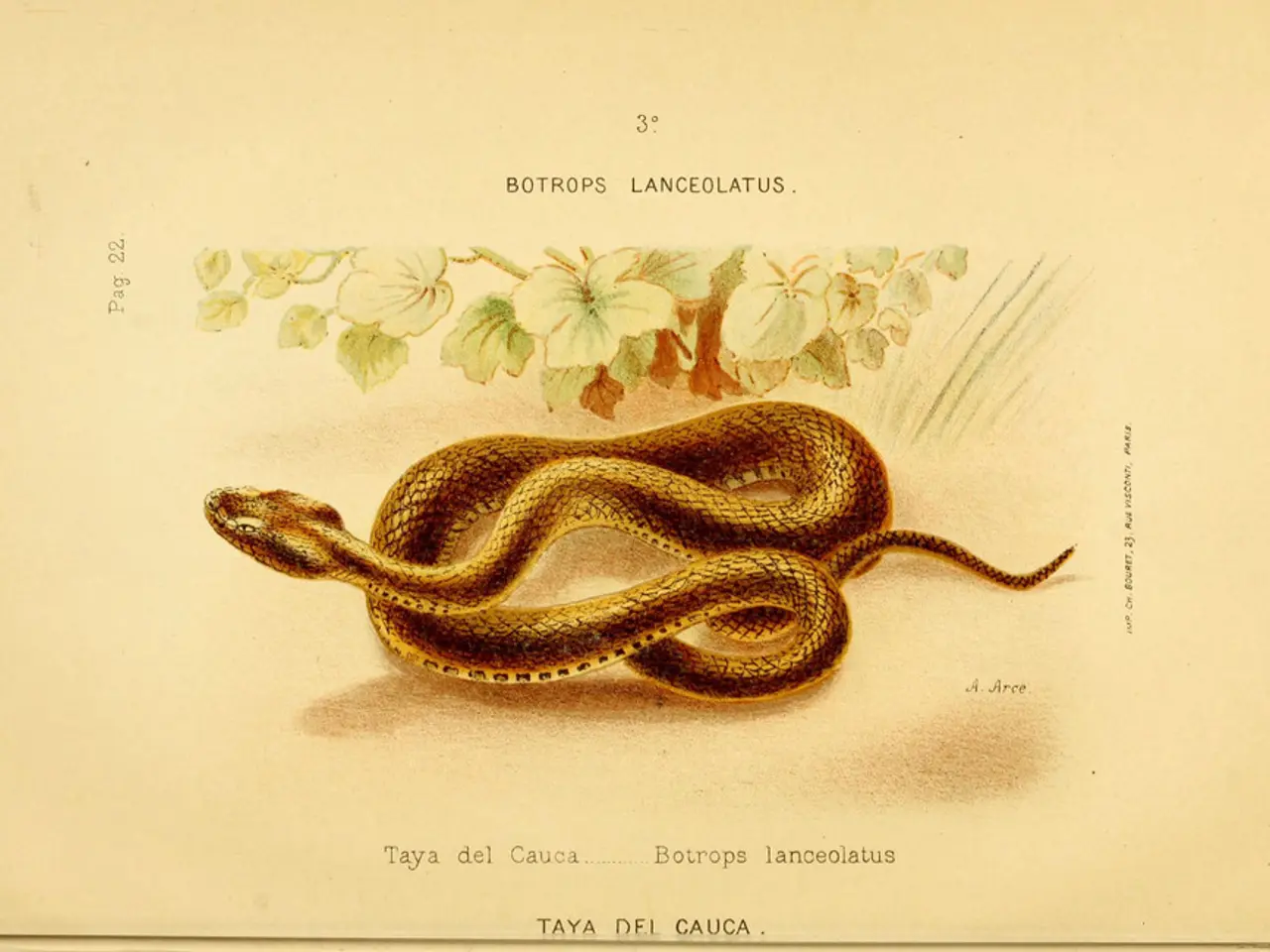Celebrating Nature's Misinterpreted Reptiles: World Snake Day 2025
In the heart of July, on the 16th, the world comes together to celebrate World Snake Day. This annual event serves as a powerful reminder of the importance of valuing and preserving these often misunderstood creatures for future generations.
Snakes, despite their fearsome reputation, play a crucial role in maintaining ecological equilibrium. They are natural pest controllers, regulating populations of rodents and insects in both forests and agricultural areas. This role benefits agriculture by reducing crop damage and limiting the spread of diseases.
However, many misconceptions about snakes persist. They are often seen as inherently dangerous, aggressive, and worthy of fear or immediate elimination. These views overshadow the reality of snakes as vital components of ecosystems rather than mere threats. Fear, danger, and revulsion are common associations, but such perceptions ignore snakes' ecological roles.
On this World Snake Day, various organisations are working tirelessly to debunk these misconceptions through public awareness programs. For example, the National Zoological Park in New Delhi hosted interactive sessions explaining snake diversity and venomous species native to India, emphasising their ecological roles.
Moreover, these initiatives aim to engage the public by offering practical knowledge on snakebite response and dispelling harmful remedies. They provide direct interaction opportunities, such as visits to snake enclosures with experts explaining behavioural and biological traits, aiming to reduce irrational fears.
In countries like India, where snakes are respected symbols and part of traditional practices, these efforts foster coexistence ideals alongside ecological facts. By highlighting cultural reverence and significance, these organisations encourage a deeper understanding and appreciation of these fascinating creatures.
World Snake Day also utilises social media and community events globally, especially in biodiversity-rich countries like India, South Africa, Australia, and the USA, to promote awareness with campaigns under hashtags like #WorldSnakeDay, #SaveSnakes, and #SnakeAwareness.
Sarah Tancredi, an experienced journalist and news reporter specialising in environmental and climate crisis issues, is dedicated to informing the public and promoting sustainable solutions. Her work in highlighting the essential function of snakes in nature is invaluable in shifting the narrative from fear and persecution to respect.
However, snakes face numerous threats, including climate change, habitat loss, and illegal trade. Stricter trade laws are being employed by groups like the IUCN Snake Specialist Group to conserve endangered snake species. World Snake Day encourages public participation in conservation efforts, including reporting illicit trade, promoting wildlife corridors, and implementing sustainable practices.
Moreover, the green anaconda, king cobra, ball python, and many other species serve as inspiration for new products, such as painkillers and medications for heart disease, made from their venom. The king snake, for instance, is immune to rattlesnake poison and helps control deadly snakes.
By dispelling myths and promoting conservation, we can respect snakes' essential function in nature. Community-driven initiatives in India and Southeast Asia promote snake rescue and relocation programs to avoid human-snake confrontations. This year's events for World Snake Day encourage people to support conservation efforts to guarantee the survival of these essential species.
In conclusion, World Snake Day is more than just a day to celebrate these fascinating creatures. It is a call to action, a reminder of our responsibility to protect and conserve these vital components of our ecosystems. Only by understanding and appreciating their role can we ensure their legacy lives on in a changing world.
- Environmental organizations are using World Snake Day as an opportunity to educate the public on snakes' ecological importance and misconceptions surrounding them.
- Sarah Tancredi, a journalist specializing in environmental and climate crisis issues, is dedicated to informing the public about snakes' crucial role in nature and promoting sustainable solutions.
- In addition to public awareness programs, organizations are offering courses and interactive events, such as snake enclosure visits, to foster understanding and reduce irrational fears.
- Climate change, habitat loss, and illegal trade pose significant threats to snake populations, and groups like the IUCN Snake Specialist Group are implementing stricter trade laws to conserve endangered species.
- Science has discovered that snakes, like the green anaconda and king cobra, can inspire new medications and products, such as painkillers and heart disease treatments, from their venom.
- World Snake Day encourages the public to take part in conservation efforts, such as reporting illicit trade, promoting wildlife corridors, and implementing sustainable practices, to protect these vital components of our ecosystems.




